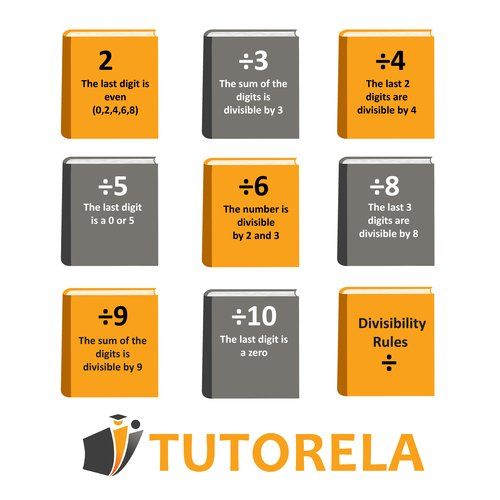Divisibility Rules for 3, 6 and 9: Practice Problems
Master divisibility rules for 3, 6, and 9 with step-by-step examples and practice problems. Learn digit sum tricks and shortcuts for quick mental math.
- Apply the digit sum rule to test divisibility by 3
- Recognize when numbers are divisible by 6 using combined rules
- Use the digit sum method for divisibility by 9
- Identify divisibility patterns in large numbers quickly
- Solve real-world problems using divisibility shortcuts
- Build confidence with mental math divisibility tricks
Understanding Divisibility Rules for 3, 6 and 9
Divisibility criteria for
A number is divisible by if the sum of its digits is a multiple of .
Divisibility criteria for
A number is divisible by if it is even and also a multiple of .
Divisibility criteria for
A number is divisible by if the sum of its digits is a multiple of .

Practice Divisibility Rules for 3, 6 and 9
Is the number below divisible by 9?
\( 189 \)
Examples with solutions for Divisibility Rules for 3, 6 and 9
Determine if the following number is divisible by 3:
To determine if 352 is divisible by 3, we need to follow these steps:
- Calculate the sum of its digits.
- Check if this sum is divisible by 3.
Let's work through the procedure:
The number consists of the digits 3, 5, and 2.
Step 1: Calculate the sum of the digits.
The sum is .
Step 2: Check if 10 is divisible by 3.
Since 10 divided by 3 gives a remainder, 10 is not divisible by 3.
Therefore, the number 352 is not divisible by 3.
The correct answer is No.
Answer:
No
Determine if the following number is divisible by 3:
To determine if 673 is divisible by 3, we must use the divisibility rule for 3, which states that a number is divisible by 3 if the sum of its digits is divisible by 3.
First, we'll calculate the sum of the digits: .
Calculating this, we get: .
Next, we check if 16 is divisible by 3. Dividing 16 by 3 gives a quotient of 5 and a remainder of 1.
Since 16 is not divisible by 3 (as it leaves a remainder), we conclude that 673 is not divisible by 3.
Thus, the correct answer is No.
Answer:
No
Determine if the following number is divisible by 3:
To determine if the number is divisible by , we can apply the rule for divisibility by , which involves summing the digits of the number.
Step-by-step solution:
- Step 1: Sum the digits of the number .
- Step 2: Check if the sum is divisible by .
, which is an integer.
Since the sum of the digits is and is divisible by , the number is also divisible by .
Therefore, the number is divisible by , and the correct choice is:
Yes
Answer:
Yes
Determine if the following number is divisible by 3:
To determine if the number 564 is divisible by 3, we apply the divisibility rule for 3:
- A number is divisible by 3 if the sum of its digits is divisible by 3.
Let's calculate the sum of the digits of 564:
Next, we check if 15 is divisible by 3. Since 15 can be divided by 3 without a remainder, it is divisible by 3:
Therefore, based on the divisibility rule, 564 is divisible by 3.
Thus, the correct answer is Yes.
Answer:
Yes
Will a number divisible by 6 necessarily be divisible by 2?
In order to determine if a number divisible by 6 is also divisible by 2, we first review the divisibility rules:
- A number is divisible by 6 if it is divisible by both 2 and 3.
- A number is divisible by 2 if its last digit is even (one of 0, 2, 4, 6, or 8).
Consider a number that is divisible by 6. By definition, since 6 itself factors into 2 multiplied by 3, any number divisible by 6 must be divisible by 2 and 3. This means that any number divisible by 6 is automatically divisible by 2 because 2 is a part of its factorization.
Therefore, yes, any number divisible by 6 will necessarily be divisible by 2 as per the rule of divisibility.
Thus, the correct choice is:
- Choice 1: Yes
This conclusion adheres strictly to divisibility rules and confirms the assertion that being divisible by 6 includes being divisible by 2.
Answer:
Yes